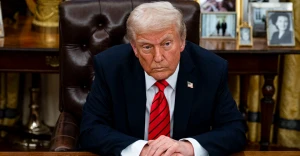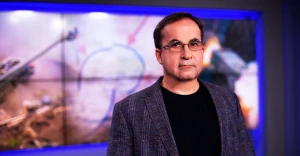
ISW assesses Wagner PMC's effectiveness upon return to Ukraine
The return of individual Wagner PMC members to Ukraine does not present a significant military threat, ISW experts state
This analysis comes from the Institute for the Study of War (ISW).
American analysts are uncertain about Wagner PMC's status due to negotiations regarding its future collaboration with the Russian government. The core combat units of Wagner PMC are scattered across various countries, including Belarus, the Central African Republic, Libya, and Mali, and lack unified leadership.
On September 29, Russian President Vladimir Putin publicly announced that Andrey Troshev, the former chief of staff of Wagner PMC, would oversee the formation of new "volunteer" units mainly tasked with operations in Ukraine within the Russian Ministry of Defense.
ISW has indicated it will reassess Wagner PMC's prospects as an effective military entity if it successfully reforms into a cohesive, large organization under the Rosgvardia or the Russian Ministry of Defense.
Previously, analysts believed that the fragmented elements of Wagner PMC posed a limited military threat to Ukraine.
However, ISW noted, "This initial assessment will be invalidated if the Wagner Group reestablishes itself as a coherent and large formation under the Russian government with effective centralized leadership."
More about the fate of the Wagner mercenaries
Following the mutiny of Wagner PMC leader Yevgeny Prigozhin in late June, the Kremlin reported that mercenaries had been relocated to Belarus.
On July 31, it was reported that Wagner PMC had suspended the work of its regional centers for recruiting mercenaries " for an indefinite period". Also, by order of financier Yevgeny Prigozhin, they had to arrive at camps in the Republic of Belarus by August 5.
Later, on August 23, an Embraer business jet belonging to Yevgeny Prigozhin crashed in the Tver region of Russia, with 10 people reported dead. The PMC financier Wagner himself was among the passengers.
According to the Institute for the Study of War, it was Russian President Vladimir Putin who ordered Prigozhin's murder in order to restore his dominance and avenge his humiliation.
On September 24, ISW reported that some contingents of Wagner PMC are likely to return to fighting in the ranks of the Russian occupation army in Ukraine. Instead, the mercenaries will not be able to help the Russian army significantly turn the tide at the front in their favor.
Wagner PMC mercenaries arrived from Belarus to the territory of the Eastern Military Group. Some of them are now renegotiating contracts with the Russian Defense Ministry to return to the front in Ukraine, but this does not pose a major threat to the Ukrainian counteroffensive.
On September 29, Vladimir Putin tasked Andriy Troshev, the former chief of staff of Wagner PMC, with organizing so-called volunteer units for the conflict in Ukraine.
- News











































